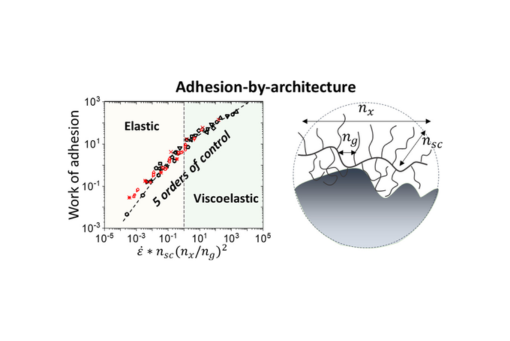
Andrey Dobrynin
Mackenzie Distinguished Professor
Caudill Laboratories 119(919) 962-1580
avd@email.unc.edu
Group Website
Curriculum Vitae
Research Interests
Theoretical/Computational materials chemistry, Polymer and soft matter theory, Physical chemistry
Research Synopsis
My research is focused on development of computational and theoretical models of network and gels, polyelectrolyte solutions and gels, charged polymers at surfaces and interfaces, electrostatic interactions in biological systems, wetting and adhesion, graphene based polymeric materials, nanocomposites, soft-matter physics and biophysics. New directions include development of computer models for 3D printing and advanced additive manufacturing, computationally driven and AI based materials design, statistical data analysis and “big” data visualization. The knowledge gained from these studies impacts numerous areas of Soft Matter and Polymer Science.
Professional Background
Andrey V. Dobrynin is Mackenzie Family Eminent Distinguished Professor of Chemistry. He received B.S. (1987) and Ph.D. (1991) degrees in Polymer Physics from the Moscow Institute of Physics and Technology, Moscow, Russia.
Before joining University of North Carolina at Chapel Hill in summer 2020, he was Alan N. Gent Ohio Research Scholar, Professor of Polymer Science at the College of Polymer Science and Polymer Engineering, University of Akron (2015-2020), faculty at the Institute of Materials Science, University of Connecticut (2001-2015), served as a Program Director of the Condensed Matter and Materials Theory Program, Division of Materials Research at the National Science Foundation (2013-2015).
Prof. Dobrynin is a Fellow of the American Physical Society, the American Association for the Advancement of Science, and the Polymer Division, the American Chemical Society and Member of the Connecticut Academy of Science and Engineering.
News & Publications

A study explored how the diffusion of star-like and chain-like polymers depends on the pH and salt concentration of the solution.

Herein, we develop a precise additive-free PSA design platform that predictably leverages polymer network architecture to empower comprehensive control over adhesive performance.

